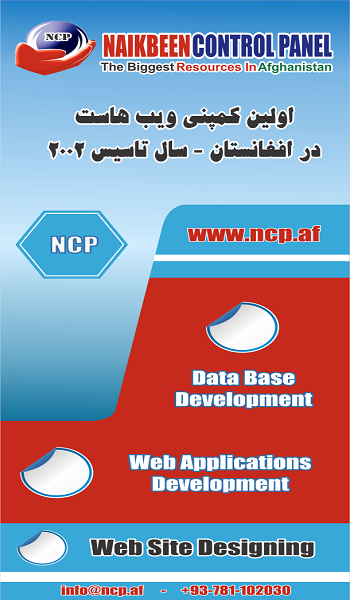The United Nations Assistance Mission in Afghanistan (UNAMA) is a UN Special Political Mission established to assist the state and the people of Afghanistan in laying the foundations for sustainable peace and development. UNAMA was established on 28 March 2002 by United Nations Security Council Resolution 1401. Its original mandate was to support the implementation of the Bonn Agreement (December 2001). Reviewed annually, this mandate has been altered over time to reflect the needs of the country and was extended for six months, on 17 September 2021, by UN Security Council Resolution 2596 (2021).
The Council also requested the Secretary-General to prepare a written report by 31 January 2022 outlining “strategic and operational recommendations for the mandate of UNAMA in light of recent political, security, and social developments” in Afghanistan.
UNAMA is headed by the Special Representative of the Secretary-General (SRSG) for Afghanistan, Deborah Lyons, who was appointed to the post in March 2020, replacing Tadamichi Yamamoto. Previous SRSG’s were– Lakhdar Brahimi who served from October 2001 to January 2004; Jean Arnault from February 2004 to February 2006, followed by Tom Koenigs from March 2006 to December 2007, Kai Eide from 2008 to 2010, Staffan di Mistura from 2010 to 2011, Ján Kubiš from 2012 to 2014, Nicholas Haysom from 2014 to 2016 and Tadamichi Yamamoto from 2016 to 2020.
Since 2008, and following a directive of the UN Secretary-General, UNAMA is an integrated mission. This means that the Special Political Mission, all UN agencies, funds and programmes, work in a multidimensional and integrated manner to better assist Afghanistan according to nationally defined priorities.
The SRSG is responsible for all UN activities in the country and directly oversees the Security Section, Strategic Communication Service, Human Rights Section, and Peace and Reconciliation. The SRSG’s Chief of Staff oversees UNAMA’s Field Offices.
Two deputy Special Representatives (DSRSG) oversee the main pillars of the mission – political and developmental issues. Included under these pillars are mission sections specializing in issues such as political analysis, reporting, and outreach, and donor coordination, as well as the coordination of UN agencies funds and programmes.
Under the direct supervision of the Chief Human Resources Officer, the incumbent will perform the following responsibilities:
Human Resources Management:
Performs various actions related to the administration of the work unit’s human resource activities, e.g., recruitment, placement, promotion, relocation, performance appraisal, job classification reviews, separation of staff members, training etc., consistently applying UN rules, regulations, policies and procedures. Liaises with central administration/executive services as required; Maintains vacancy announcement files and updates track vacancy announcements; Prepares personnel actions through the UN's current electronic tools, e.g., Umoja; Advises staff on visa matters; Provides advice and answers general queries on classification procedures and processes; Provides information and advice to staff/consultants with respect to conditions of service, duties and responsibilities, and privileges and entitlements under the Staff Rules and Regulations; Monitors assigned staffing tables for a variety of human resource activities, e.g., appointments, retirement, expiration of appointments, reassignments, transfer and movement of staff.
Budget and Finance:
Provides assistance in the preparation and development of the office’s work programme and budget; Assists in monitoring the budget/work programme with respect to various budgets, trust funds, grant and other funds on a regular basis, and records reallocations of resources and implements the reallocations as necessary; Collects data from relevant databases and assist in preparation of financial reports; Provides assistance in the review, and preparation of the medium-term plan and its revisions; Reviews and assists in the finalization of cost estimates and budget proposals, in terms of staff and non-staff requirements for the mission including programmatic aspects; monitors compliance with the medium-term plan and other legislative mandates; May assist managers in the elaboration of resource requirements for budget submissions; Monitors budget implementation/expenditures and records reallocation of funds as necessary; Reviews requisitions for goods and services to confirm (a) that correct objects code of expenditure have been charged, and (b) availability of funds; Monitors extra-budgetary resources, in line with agreements and cost plans with special attention given to regulations and rules and established policies and procedures; Assists in the preparation of budget performance submissions; Assists in finalization of budget performance reports with attention given to variances between approved budgets and actual expenditures.
General Administration
Provides guidance to mission and/or subordinate staff. May provide assistance in reviewing host country agreements, budget agreements, or contributions for grants or other activities within assigned areas; Identifies and reports issues/problems as they arise, and recommends appropriate actions; Coordinates regularly with service units and liaises as needed with internal team members both at the mission and in outstations; Performs other related administrative duties, as required (e.g., travel , monitoring accounts and payment to vendors and individual contractors for services, reviews physical space plans and assists in the identification of office technology needs, maintenance of equipment, software and systems, organizes and coordinate seminars, conferences and translations).
Education
High school diploma or equivalent is required.
Work Experience
A minimum of 5 years of relevant experience in design, delivery and evaluation of training courses or related areas such as assessing training needs and planning training programmes are required. The minimum years of relevant experience is reduced to 3 years for candidates who possess a first level university degree or higher in learning and development, management, public or business administration.
Training in human resources, Train the Trainer (TOT) or teachers’ education is desirable.
Experience delivering training to adults is desirable.
Experience in a multicultural and/or international work environment is desirable.
Languages
English and French are the working languages of the United Nations Secretariat. For the post advertised, fluency in oral and written English is required. Fluency in oral and written Pashto or Dari is required.
Interested applicants are encouraged to apply through Inspira portal: https://inspira.un.org

